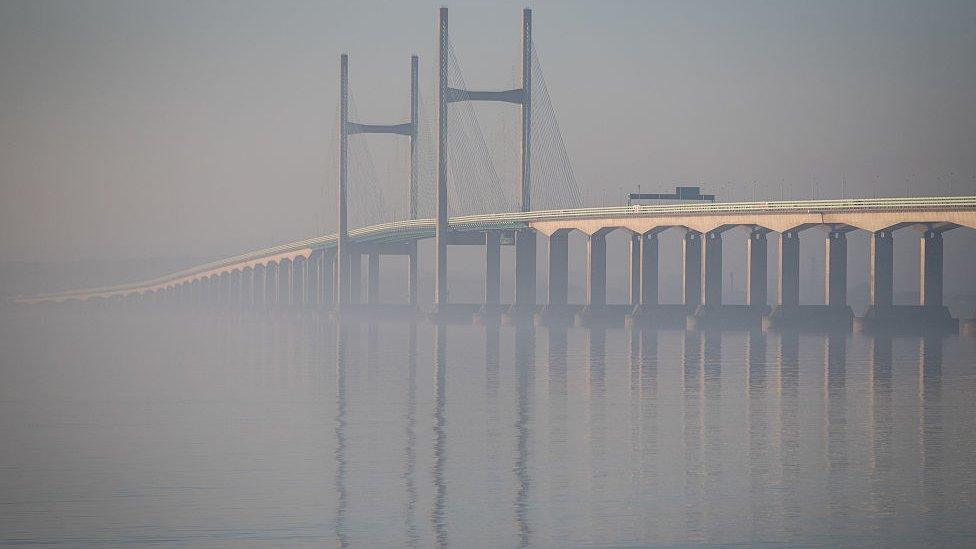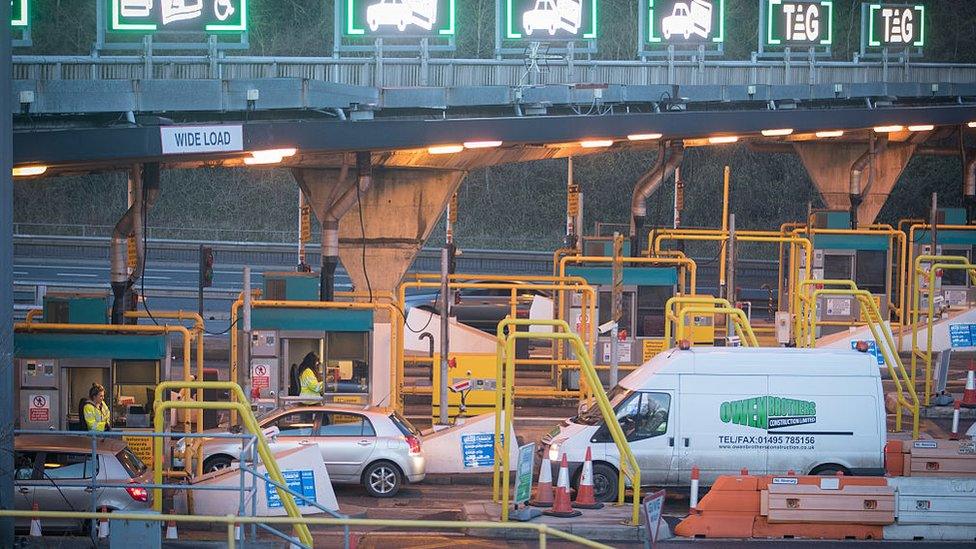The Second Severn Crossing: Whose is it?
- Published

Welsh Secretary Alun Cairns's announcement that the Second Severn Crossing would be renamed to honour the Prince of Wales prompted howls of outrage on social media last week.
There have been demands for a public consultation from a petition of more than 30,000 names, and even a small protest held in Cardiff.
There, equally, have also been shrugs of the shoulders from some who say what you call the bridge does not matter.
On Tuesday Plaid Cymru's Adam Price questioned why the Welsh Government had not opposed the move.
But as far as ministers in Cardiff are concerned, it is not their responsibility.
And the two Severn bridges have frankly never been their responsibility.
Much of the Second Severn Crossing and all of the old Severn Bridge reside in England. Under the rules of how devolution works, Wales' devolved government does have responsibility for maintaining trunk roads and the M4.
But this does not extend to the parts of the Second Severn Crossings that technically reside in Wales, for a simple reason.
The Welsh Government says the UK government owns the structure, and is therefore responsible for its maintenance.
Specifically it is Highways England that has taken over the responsibility from the private company that ran the bridges before the start of this year.

There had been unsuccessful calls for the Welsh Government to be given control over the tolls in years past.
Back in 2012 First Minister Carwyn Jones called for the Severn crossings to be devolved.
He suggested that the tolls could be reduced but not entirely abolished, with surplus revenues spent on improving the M4 in Wales.
There were suggestions that the tolls could even fund building the M4 relief road.
Any devolution of the structures could have faced questions from England as to why coffers in Cardiff should benefit from motorway links that benefit both sides of the Severn Estuary.
In any case, the devolution demands diminished, with the Welsh Government becoming firmly in favour of the toll being scrapped entirely.
There are no calls currently for Welsh ministers to take on the costs of maintaining the two crossings - meaning it does not have to compete with other parts of the Welsh public sector for money.
Figures from 2012 showed the cost of maintaining and operating the bridges was around £15m a year, of which some was spent on operating the tolls.
There is a question over what happens to the land at the tolls plazas, which resides firmly in Wales near the village of Rogiet, Monmouthshire.
We asked the Department for Transport in London who gets the land once the tolling ends, but the department has not responded